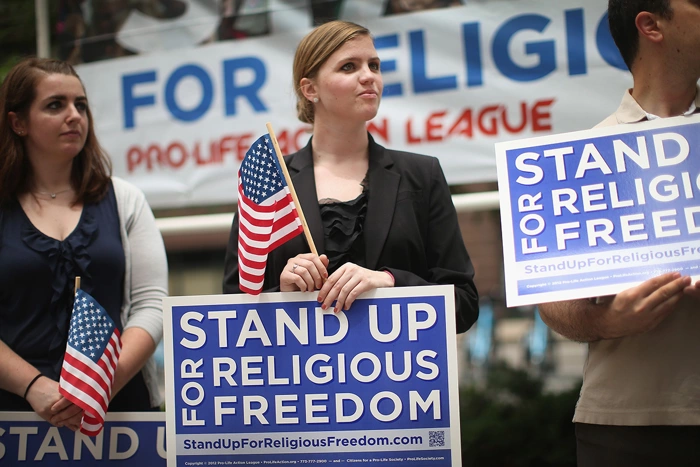
Which states are the worst at protecting religious freedom of ministries and faith groups?
October 28, 2025
The Napa Legal Institute’s 2025 Faith and Freedom Index has been released, highlighting which states are the friendliest and which are most hostile to faith-based nonprofits.
The Christian Post reports that the index ranks each state on a scale of 0-100 based on its “religious freedom score” and “regulatory freedom score” and its protections for religious nonprofit organizations.
Senior Counsel and Napa Legal Institute Director of Content Frank DeVito calls the Faith and Freedom Index a “powerful tool for lawmakers to see where they must add protections, strengthen existing state laws, or repeal harmful state laws.”
According to the Christian Post, a state’s religious freedom score is based upon several factors, including the presence or absence of state constitutional protection of free exercise, whether the state has passed a Religious Freedom Restoration Act, religious freedom conditions for nonprofits with public programming, religious freedom conditions for faith-based employers, protections for religious exercise during a state emergency and state Blaine Amendments.
The states with the lowest religious freedom scores included Michigan, Vermont, Delaware, Washington and Maryland.
By contrast, Alabama and Kansas scored the highest in the religious freedom category while other states rounding out the top five included Mississippi, Georgia and Florida.
The Napa Legal Institute had high praise for Alabama and Kansas for their “exemplary protections for faith-based nonprofits that other states should emulate.”
In terms of regulatory freedom, Indiana and Montana had the highest scores, while Iowa and Arizona also secured spots in the top five, with Texas and Wyoming tied for fifth place.
States that ranked near the bottom in this year’s index included Illinois, which ranked last, as well as Michigan, Massachusetts, South Dakota and Washington.
State regulatory freedom scores were determined by several factors, like the state’s nonprofit religious corporation law, prior notice and consent requirements for major corporate actions, standards of conduct for directors of religious organizations, charitable registration law, audit requirements pursuant to charitable registration, corporate income tax and exemptions, sales tax and exemptions, use taxes and exemptions as well as property taxes and exemptions.
Photo: top, Credit: Scott Olson/Getty Images
